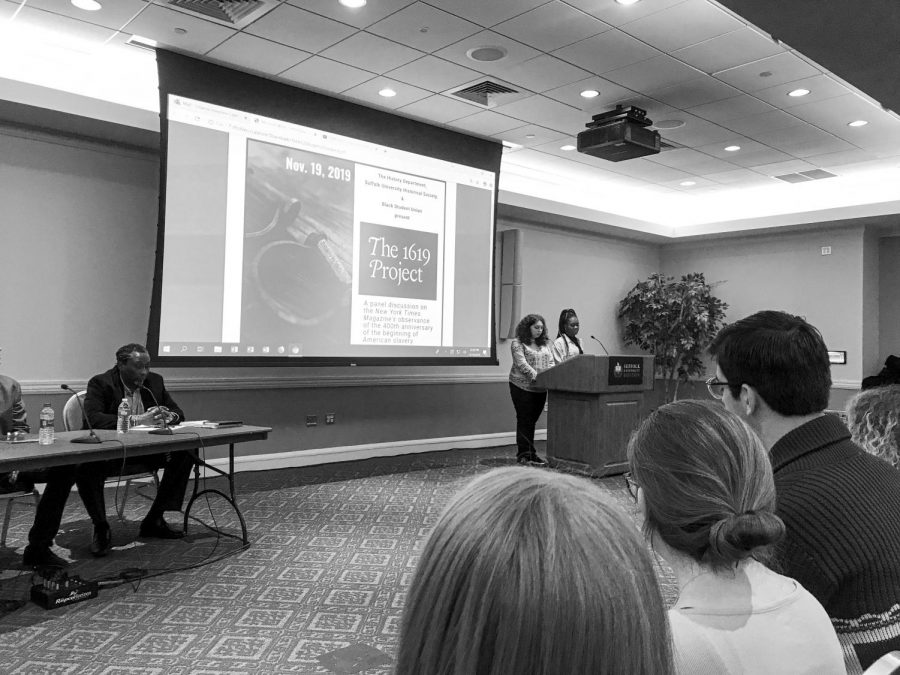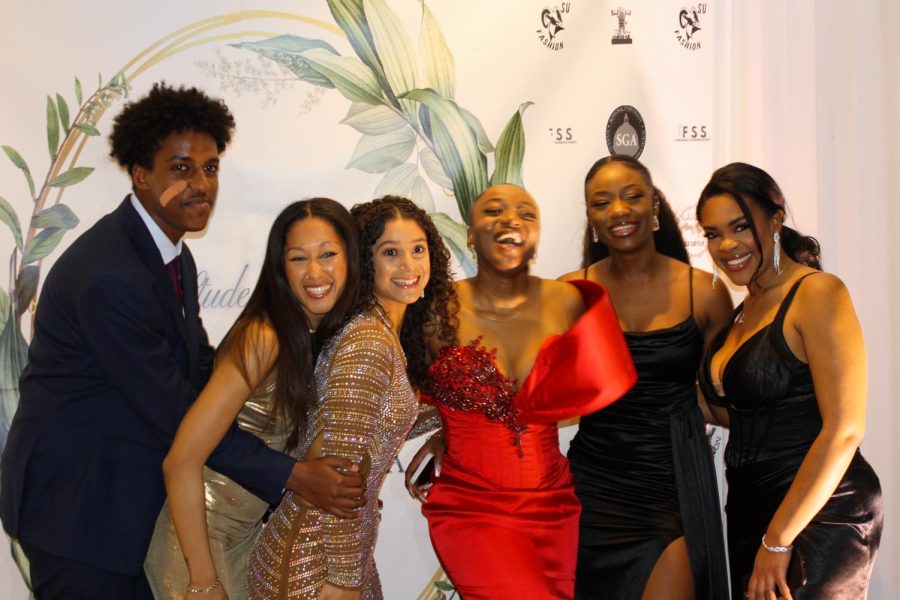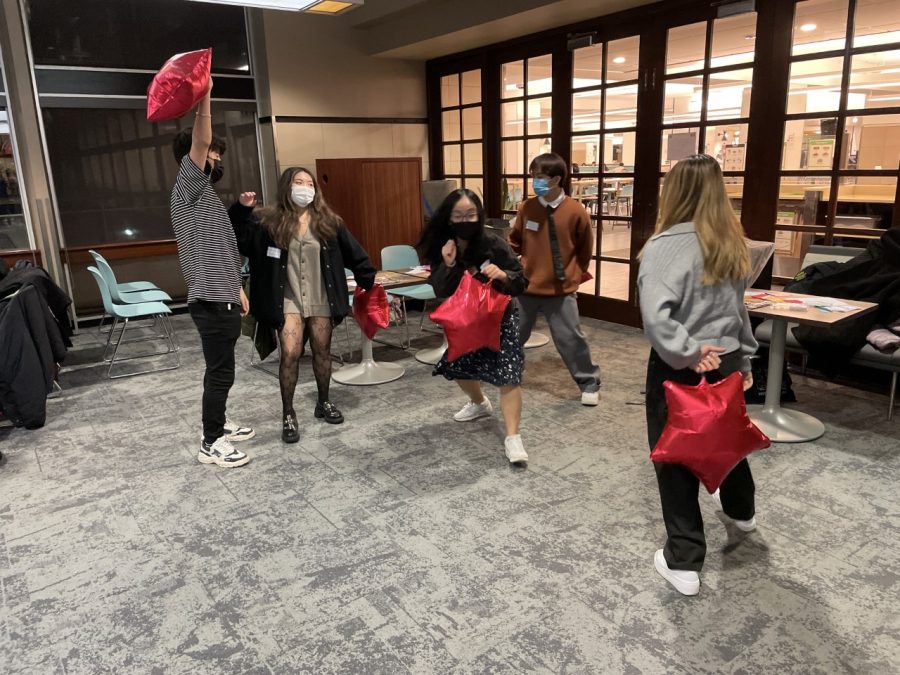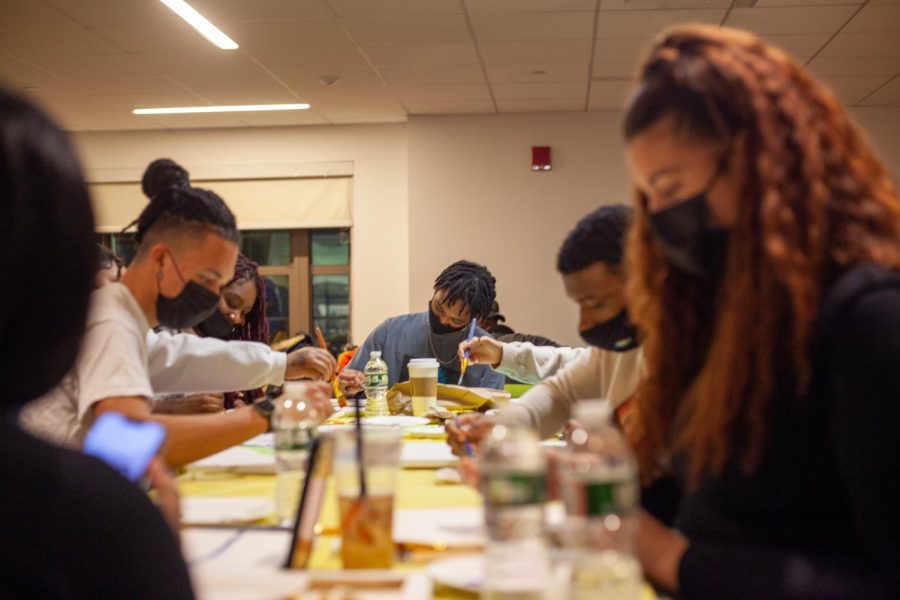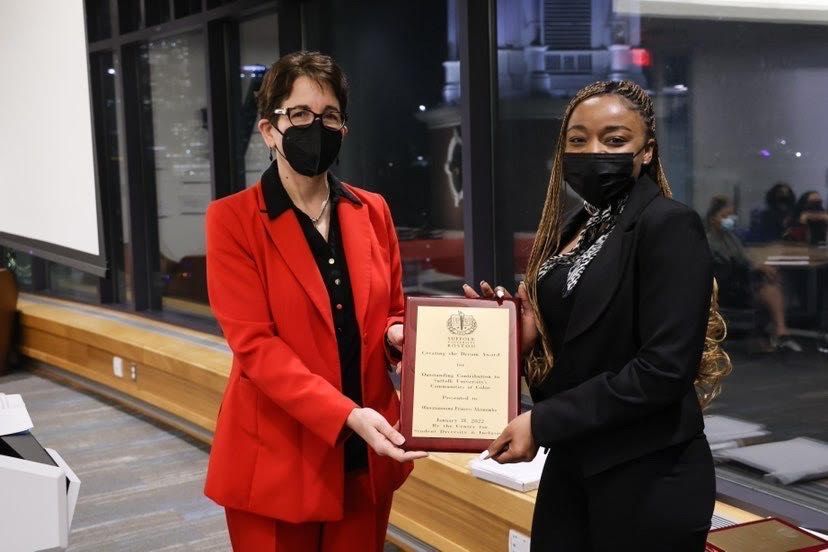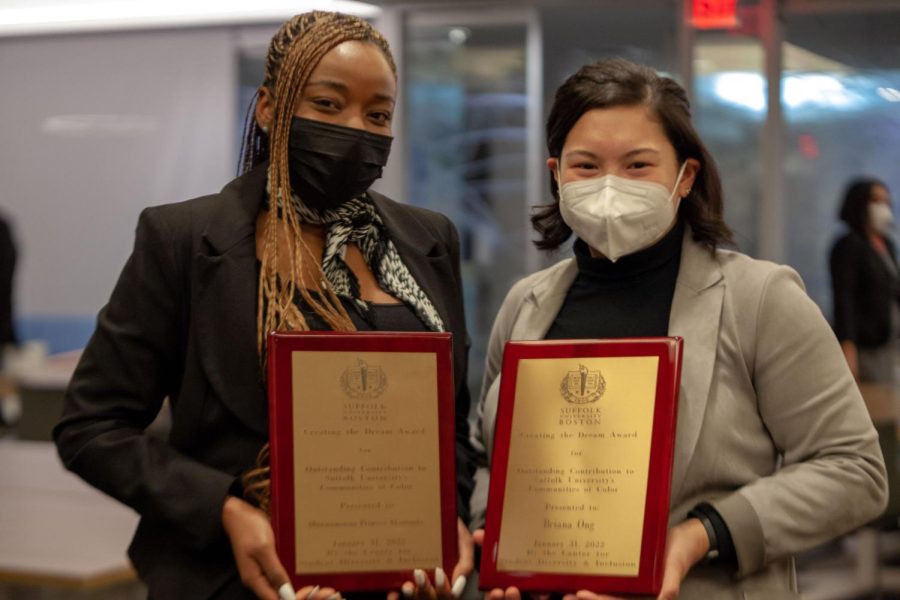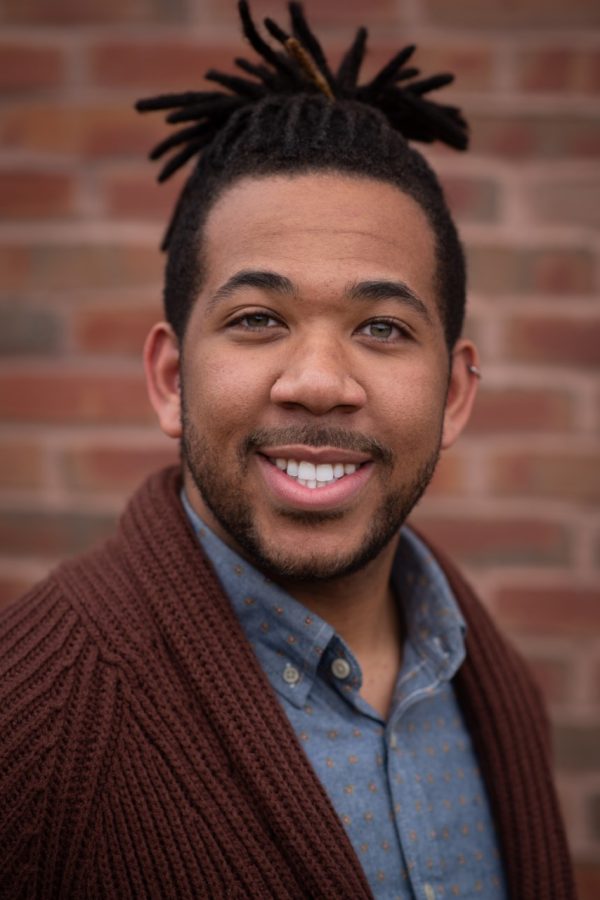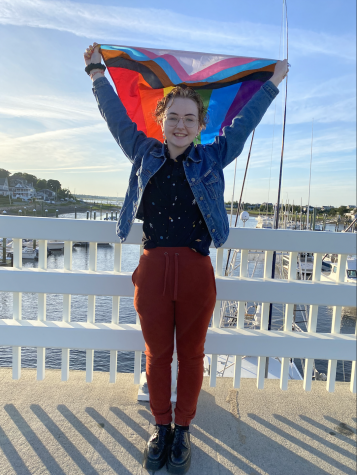The Black Student Union and the History Club co-hosted a panel discussion on the 1619 Project by The New York Times with professors Robert Bellinger, Lester Lee and Quentin Miller.
The photo journal project observes the 400th anniversary of slavery within the United States and the impact that it still makes on everyday life. This panel opened the discussion of the legacy of slavery to the Suffolk community and allowed the audience to ask what we can do in 2019 to advance society further along the path of equality.
The panel had three professors at Suffolk all involved within the Black studies program. This year marks the 25th anniversary of the Black Studies Program, and was monumental in opening discussion about equality in the Suffolk Community and society in general.
Professor Bellinger, director of the Black Studies Program and the Clark Collection of African American Literature commented on the fact that Suffolk should put more funding into the Black Studies Program.
Bellinger. “What I would like to maybe one day see is for this university to put some of its economic abil- ities into the Black Studies Program, into creating a curriculum that is more inclusive overall.”
Ahria Ilyas, a freshman at Suffolk, commented on how she wants to get involved in making Suffolk and its curriculum more inclusive.
“I am trying to get involved with how the university approaches Black people as well as the Black history and making sure that their history is told in a positive sense and also a leadership sense and I think [the panel] did a really good job showing the history behind [the 1619 project] and how these professors articulate history to their students.”
One of the panelists that teaches an African American literature course at Suffolk, Professor Miller, commented on the fact that history needs to be revised.
“This line is a good synopsis of the entire 1619 project ‘revision is a struggle towards truth’ and I think that’s really what this whole thing is about,” said Miller. “The struggle is this notion that we have to revise our history always if we are going to assume that its truthful we have to keep revising and revising to see it again and through different lenses.”
Lee, a professor of history, commented on the small time frame of African American freedom within society. Lee said how little time of 50 years that Black Americans have been able to participate freely in society compared to the 400 years of American history.
The panel highlighted the need for a deeper understanding of African
American history in different aspects and what people in 2019 can do to bring equality and representation to society.
Students at Suffolk commented on their impression on the panel regarding the 1619 project, and what we can do here at Suffolk to be a more inclusive community.
Emilee Morin, a student at Suffolk, commented on how the white community can also contributed to creating an accurate historical narrative.
“I think that we need to bring marginalized voices into the conversation, it can’t be a one sided narrative, it has to be a discussion between those who are marginalized and those who aren’t especially as part of the white community to try and better our understanding of these circumstances of oppression that others are going through.”
“Here in the US, we tend to show that we value things by where our dollars go,” said
Bellinger. “What I would like to maybe one day see is for this university to put some of its economic abilities into the Black Studies Program, into creating a curriculum that is more inclusive overall.”
Ahria Ilyas, a freshman at Suffolk, commented on how she wants to get involved in making Suffolk and its curriculum more inclusive.
“I am trying to get involved with how the university approaches Black people as well as the Black history and making sure that their history is told in a positive sense and also a leadership sense and I think [the panel] did a really good job showing the history behind [the 1619 project] and how these professors articulate history to their students.”
One of the panelists that teaches an African American literature course at Suffolk, Professor Miller, commented on the fact that history needs to be revised.
“This line is a good synopsis of the entire 1619 project ‘revision is a struggle towards truth’ and I think that’s really what this whole thing is about,” said Miller. “The struggle is this notion that we have to revise our history always if we are going to assume that its truthful we have to keep revising and revising to see it again and through different lenses.”
Lee, a professor of history, commented on the small time frame of African American freedom within society. Lee said how little time of 50 years that Black Americans have been able to participate freely in society compared to the 400 years of American history.
The panel highlighted the need for a deeper understanding of African American history in different aspects and what people in 2019 can do to bring equality and representation to society.
Students at Suffolk commented on their impression on the panel regarding the 1619 project, and what we can do here at Suffolk to be a more inclusive community.
Emilee Morin, a student at Suffolk, commented on how the white community can also contributed to creating an accurate historical narrative.
“I think that we need to bring marginalized voices into the conversation, it can’t be a one sided narrative, it has to be a discussion between those who are marginalized and those who aren’t especially as part of the white community to try and better our understanding of these circumstances of oppression that others are going through.”


